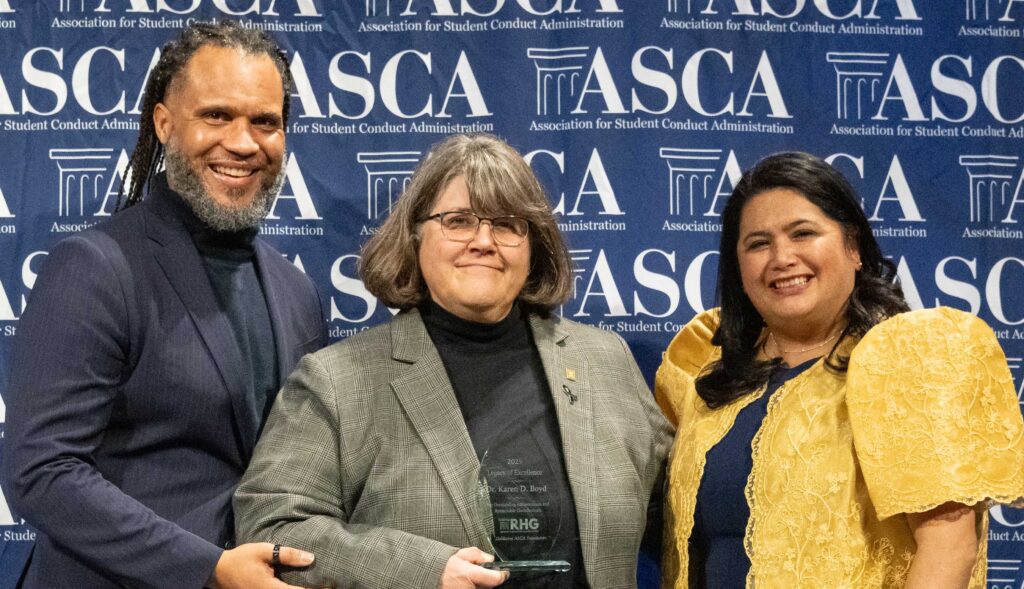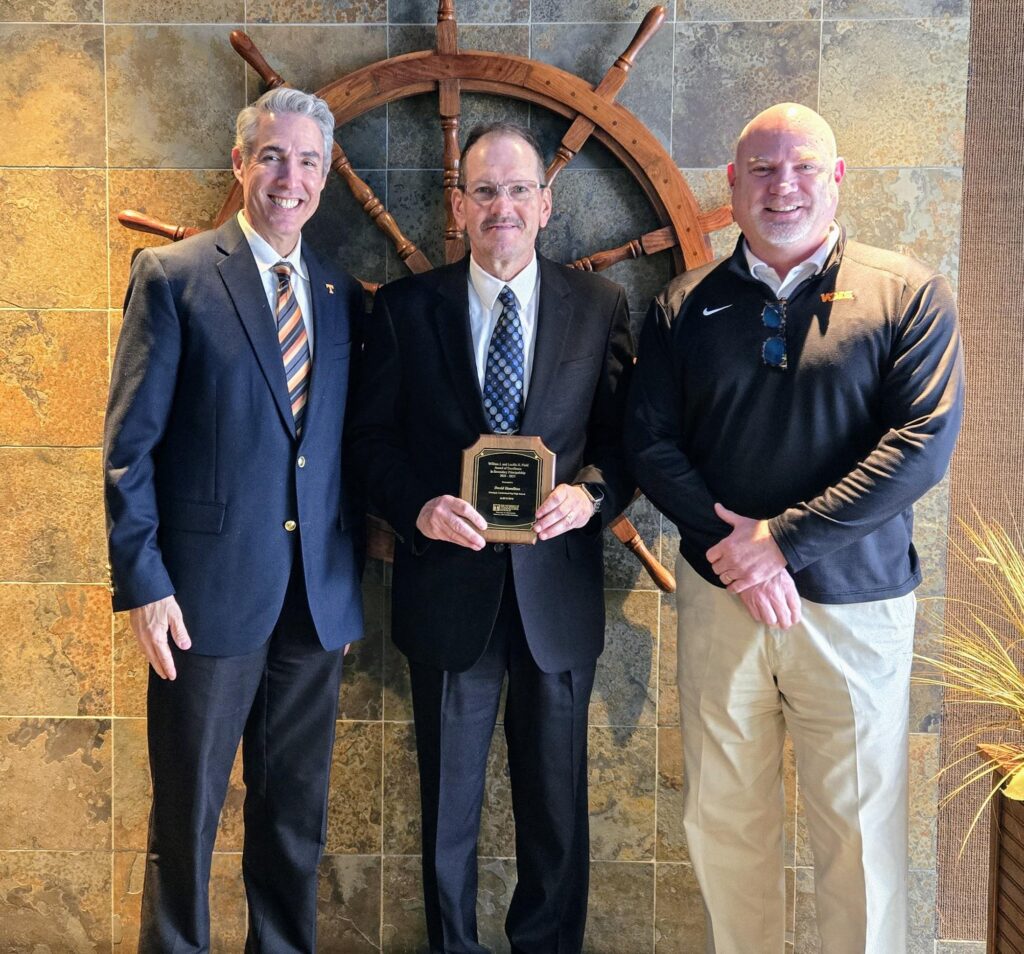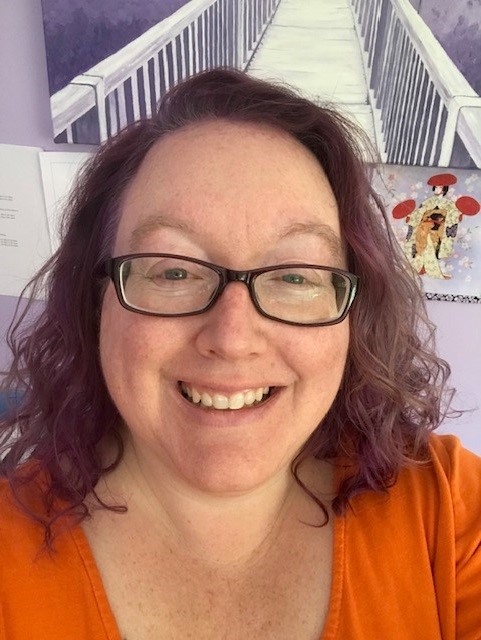Boyd Receives Legacy of Excellence Award From ASCA
Boyd Receives Legacy of Excellence Award From ASCA
Karen D. Boyd, professor of practice in the College of Education, Health, and Human Sciences (CEHHS) at the University of Tennessee, Knoxville, received the Raymond H. Goldstone Legacy of Excellence Award by the Association for Student Conduct Administration (ASCA) during its 2025 Annual Conference held in Portland, Oregon.
The Goldstone Legacy of Excellence Award is a new initiative launched from the Goldstone Foundation to recognize distinguished individuals who have impacted the field of student conduct and higher education. The Legacy of Excellence Award annually recognizes a select group of individuals who have left an enduring impact on the profession through significant contributions to the field of student conduct; impactful scholarship and research; and/or leadership within ASCA and other organizations.

Boyd has been a part of ASCA since its inception. Her leadership included Conference Chair, President, and Gehring Academy Chair, as well as authoring multiple publications and presentations and even serving as Interim Executive Director. In addition, Boyd serves as a professor of practice and director of undergraduate education in the department of Educational Leadership and Policy Studies (ELPS).
“It is an honor to be so recognized for doing work in service to the success of my students and colleagues that I have loved so very much,” said Boyd.
Many members, past and present, have benefited from all she implemented in the Association. The future of our field continues to benefit through her role as professor at the University of Tennessee, Knoxville, where her courses are consistently regarded by students as among their favorite and most impactful.
Her work with educating professionals and students about the landmark Dixon v. Alabama case, and her partnership on the documentary regarding the case, has made a significant impact on the conduct field.
The ASCA Annual Conference, spanning from February 5 – February 8, 2025, gathered nearly 650 student conduct and student affairs practitioners for a professional development experience. The awards were presented during the Awards Luncheon on February 6, 2025, where attendees gathered to connect and congratulate the recipients.
Since its inception in 1986, the Association for Student Conduct Administration (ASCA) has been at the forefront of supporting campus judicial officers and student conduct practitioners. ASCA provides members strategic resources, including communities of practice, webinars, intensive-learning opportunities (Donald D. Gehring Academy) as well as partnering with the Raymond H. Goldstone Foundation for scholarship funding. Today, ASCA supports over 2,660 members worldwide and is committed to its mission of serving as a vital resource and advocate in the field of student conduct administration. Learn more at theasca.org.
Through its seven departments and 13 centers, the College of Education, Health, and Human Sciences enhances the quality of life for all through research, outreach, and practice. Find out more at cehhs.utk.edu



